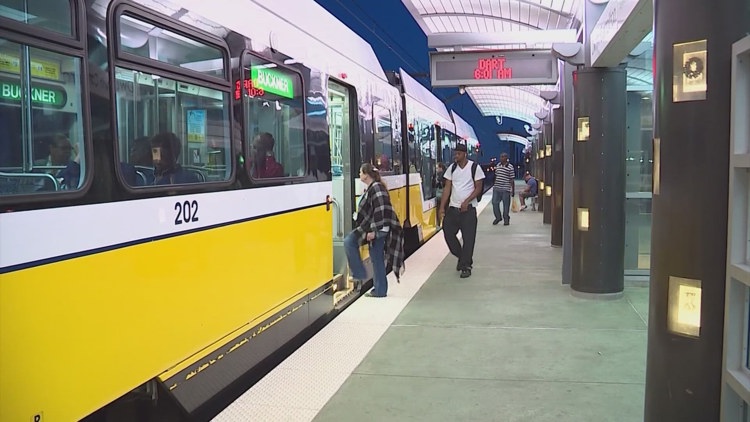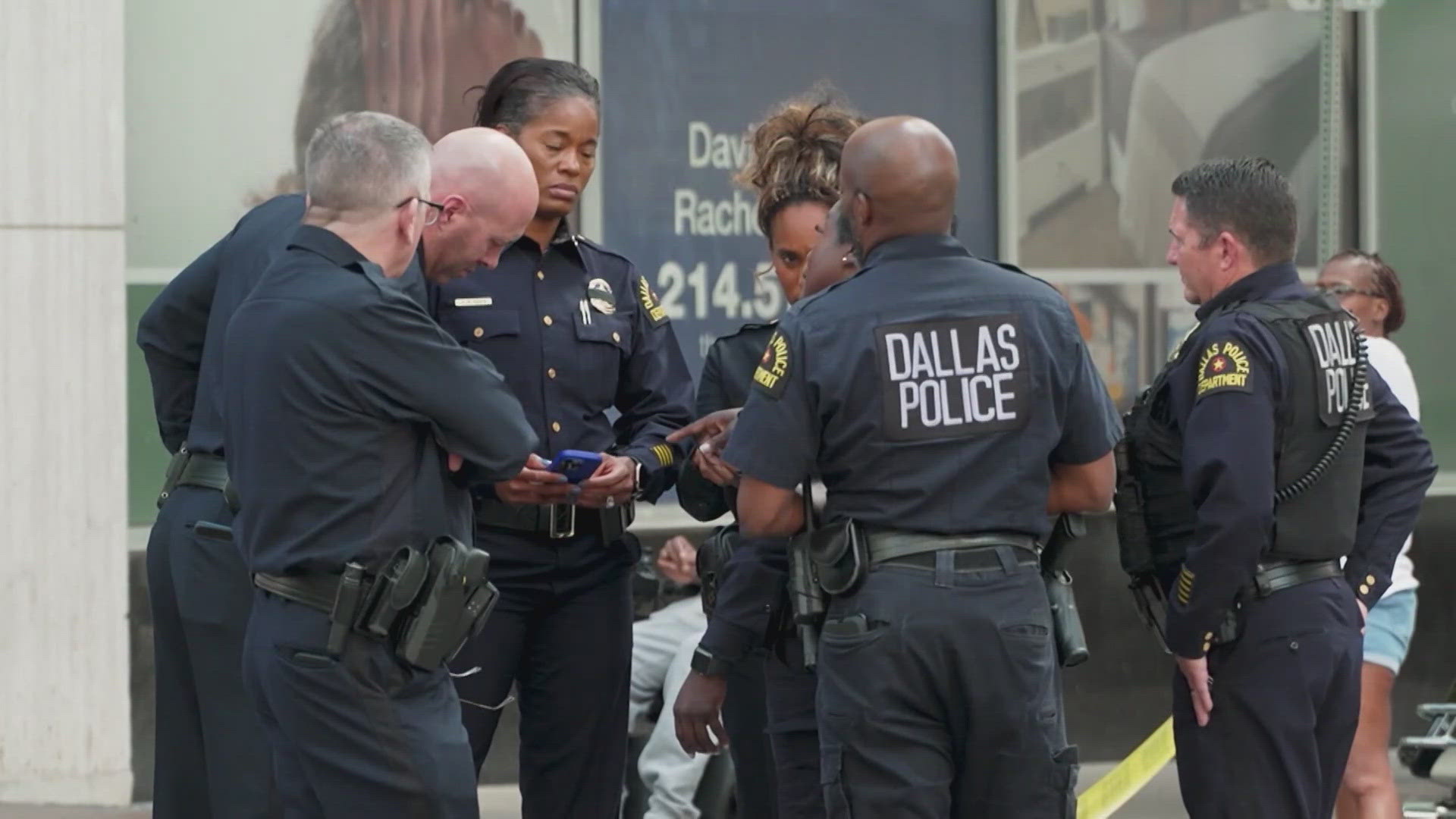DALLAS — While North Texas cities vote to reduce DART's funding, riders are getting organized to fight any proposed cuts.
When Hexel Colorado heard that the Dallas City Council was discussing using funds set aside for DART for other priorities, he brushed it off.
“I was like, that's not gonna happen,” Colorado said.
But recently, as more suburbs started voting to propose cutting funding by a quarter-cent from its current one-cent rate, that nonchalant attitude quickly turned to frustration. Colorado couldn’t believe that suburbs like Plano and Irving, which recently saw DART services expanded in their cities, now wanted to cut the agency's funding.
The votes taken by suburban city councils don’t have any real effect right now. Only the DART board itself can vote to start the process of cutting its own funding, per state law.
But Colorado and other DART riders are still concerned.
“The timing of that is so self-serving and ignorant of what’s going on,” Colorado said.
The next step after frustration was action.
Colorado, who serves on the DART Citizen Advisory Committee, is a frequent and avid user of public transportation and an advocate for more housing and transportation options in Dallas. Along with other DART users and advocates, he formed the advocacy group called The Dallas Area Transit Alliance, DATA, in July.
The group’s goal is to advocate for a “robust and equitable public transit system,” according to a press release sent from the group. They argue that proposed cuts from Plano, Irving, Rowlett, Carrollton and Farmers Branch would have a devastating impact on 220,000 daily DART passengers, a diverse group that would lose access to jobs, healthcare and voting centers.
Plano council members who voted to support the cuts argue that DART is not providing enough return on investment for cities that contribute a cent of its sales tax to the agency.
Irving Mayor Rick Stopfer, who is also on the DART Board of Directors, argued that ridership is down and the city could use that half-cent sales tax contribution for other city services like parks and libraries.
Despite these votes being symbolic, Colorado is concerned that they could quickly turn very literal. If the makeup of the DART Board of Directors changes, or suburbs that want to change the funding formula find a sympathetic ear in Austin, the situation could change quickly, Colorado said.
“There are legislators… who every session, they try to introduce some kind of bill that would strip away at DART,” Colorado said. “So part of the battle is making sure that, with the petition and everything that we're doing, we really want to [solidify] our position that funding should not be touched.”
He believes that if no one provides a counter-narrative to calls for cuts, a legislator will use the opportunity to push for changes to state law.
The formalized group has established a petition online opposing the cuts, which has gained over 1,000 signatures. As the group steadily grows, DATA is organizing canvassing events and trash cleanup at DART stations.
One member, Jonathan Hoover, is an avid DART user who depends on the 229 Macarthur-Belt Line bus. He consistently advocates for expanding the 229 line, so consistent that he was dubbed “229 man” by fellow transit advocates.
Beyond opposed cuts, he wants to see more investment in bus and rail lines.
“When I get on the bus in the afternoons, 229 going toward Irving is usually packed full of people,” Hoover said.
He balks at a comment made by Farmer’s Branch Deputy Mayor Pro Tem Richard Jackson.
“Forty years and they can't seem to police this parking lot here,” Jackson said at a meeting discussing the cuts. “We’ve got residents in pretty high dollar townhomes right here in front of a beautiful little rose garden area with nothing but a chain link fence between them and all the trash that comes up here on their trains."
Jackson later told WFAA that he was referencing litter, not humans.
“People that travel from downtown to the suburbs, are they trash? They work a job, a 9-5 job probably,” Hoover said.
The group is encouraged by cities like Richardson and Garland who want to see more from DART, as opposed to cuts. Going forward, they plan to make sure that the next time elected officials talk about DART, they are hearing from residents who depend on it.
DATA represents all 13 member cities: Dallas, Addison, Carrollton, Cockrell Hill, Farmers Branch, Garland, Glenn Heights, Highland Park, Irving, Plano, Richardson, Rowlett and University Park, the release states.
“It speaks to the purpose of forming an alliance, forming this group, we exist to push back on the narrative that we don’t exist,” Colorado said of DATA. “So, if you want to see the 'data' here it is.”



